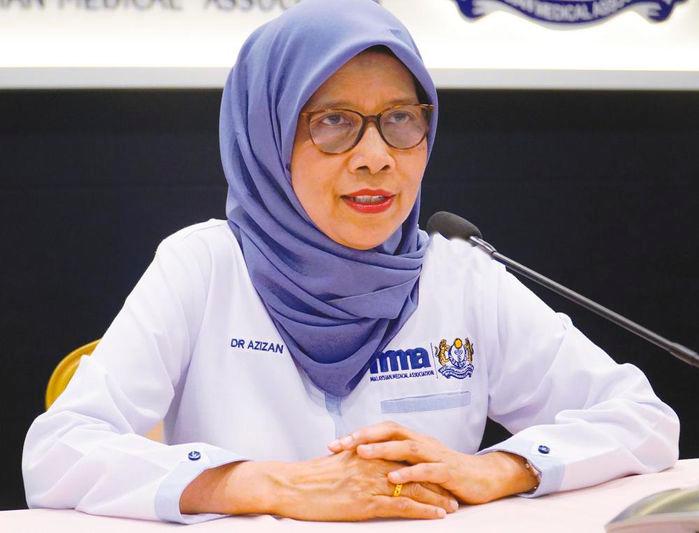KUALA LUMPUR: The Malaysian Medical Association (MMA) has called on the government to expedite the gazettement of regulations for e-cigarettes and vape products.
Its president, Dr Azizan Abdul Aziz said the delay has resulted in significant public health risks and exploitation of regulatory gaps by the vaping industry.
“We have been informed that the draft of the regulations was already completed since the end of last year but there has been no news about it since. The government must explain the reasons for this delay,” she said in a statement.
She said concerns have been raised due to 111 reported cases of exposure to questionable vape liquids from 2015 to last year, including cases involving minors, as disclosed in Parliament.
Dr Azizan said one major issue is the proliferation of mobile vape kiosks near educational institutions.
“These kiosks not only sell vaping products but also promote vaping as a lifestyle choice to young people, leading to early nicotine addiction and normalisation of vaping?
“The aggressive marketing of vaping as trendy and desirable is deeply concerning, as it can foster long-term addiction, particularly among impressionable youths,” she added.
Additionally, she said the removal of nicotine from the Poisons Act without subsequent regulations has been labeled irresponsible, adding the decision appears to favour commercial interests over public health.
The Global Tobacco Industry Interference Index 2023 indicates ongoing influence by the tobacco and vape industries in Malaysia’s policymaking, often under the guise of economic benefits.
“Corporate Social Responsibility (CSR) activities by the industry are used to build a positive public image and gain support from the community and policymakers, despite the harmful nature of their products?,” Dr Azizan noted.
Dr Azizan also warned that the surge in youth vaping could complicate future management of non-communicable diseases (NCDs), thus burdening the healthcare system.
“Early nicotine addiction not only poses severe health risks but also necessitates intensive behavioral management,” she said, while appealing to Members of Parliament to prioritise youth health and pressure the government to act swiftly.









